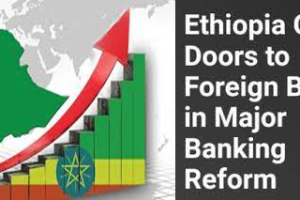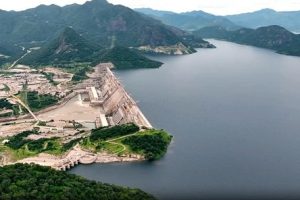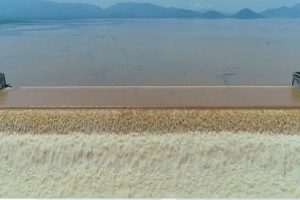The European Union (EU) recently stipulated a new legislative measure known as the EU Deforestation Free Regulation (EUDR). This initiative aims at reducing the EU’s contribution to global climate change issues, particularly deforestation and forest degradation. The regulation mandates that certain commodities entering the EU market must be sourced from areas that are deforestation free.
The primary goal of this regulation is to address global deforestation driven by forestry and agricultural practices, mitigate its adverse effects, and promote sustainable trade. The commodities affected include cattle, cocoa, coffee, palm oil, rubber, wood, and others all of which must be sourced clearly and sustainably.
While climate change does not directly cause conflicts, diseases, or toxic warfare, it plays a significant role in creating conditions that can lead to war and the displacement of millions worldwide. The effects of climate change are evident in extreme weather situation such as floods and droughts, which can devastate communities and disrupt livelihoods.
As resources become increasingly scarce due to these environmental shifts competition for vital necessities, such as water and arable land, may amplify, thus increasing the potential for conflict.
Additionally, climate related disasters can worsen health concerns, making populations more vulnerable to diseases. Some reports indicate that the effects of climate change could potentially double the mortality rates associated with these challenges.
The reports highlight that the implementation of this law poses difficulties for several African and Global South countries engaged in global trade. However, the new EUDR is expected to pose minimal challenges for Ethiopia.
According to data from the Ethiopian Forestry Development (EFD), Ethiopia has actively engaged in reducing carbon emissions in alignment with various climate agreements it has signed. The nation has also focused on restoring areas affected by drought, floods, and deforestation.
Ethiopia is likely to face few obstacles in adopting the new EUDR legislation. Reports indicate that the Green Legacy program, particularly the REDD initiatives, has been a focal point for the past five years. However, it remains essential to assess and enhance the country’s existing green economy policies and strategies.
Recently, the Ministry of Trade and Regional Integration organized discussions with various stakeholders regarding preparations for the implementation of EUDR initiatives.
The ministry emphasized that Ethiopia’s capacity to adapt to this regulation and coordinate its efforts will be vital for maintaining its position in the European market and reinforcing its reputation as a responsible global trading partner.
During the discussion of the meeting, Trade and Regional Integration State Minister Endalkachew Mekonnen underscored the importance of accurate traceability and geo-location data for Ethiopian agricultural products aimed at European markets.
Europe stands as one of the largest importers of commodities associated with deforestation, accounting for 50% of the world’s coffee and 60% of all cocoa. The regulation seeks to address the impacts of commodities like coffee and cocoa, which together were responsible for over 25% of global tree cover losses between 2001 and 2015. Furthermore, this regulation aims to promote sustainable development by preventing environmentally harmful practices.
Data from the Ethiopian Coffee Association indicated that the coffee sector must be free from any illegal activities, including child labor.
The government is required to provide documentation and proof of compliance, a task that should not be too difficult. In fact, observing to the EUDR should not present significant challenges for Ethiopia, particularly since coffee is not cultivated on deforested land.
Ethiopia is prominent for its forest coffee, grown in areas that maintain shade trees. The replacement of old coffee trees does not contribute to deforestation; instead, farmers cultivate rapidly growing coffee varieties and replace them incrementally rather than all at once.
Additionally, shade trees are planted to help mitigate the impacts of climate change.
The Ethiopian Trade and Coffee Authority (ETCA) align with European regulations by committing to a sustainable and environmentally friendly approach, which includes a ban on child labor and deforestation within the coffee sector.
In discussing Ethiopia’s efforts to obey with the EUDR, Endalkachew highlighted the strategic advantage of the Green Legacy initiative, positioning the country as a compliant and responsible trading partner.
He emphasized the necessity for thorough documentation and verification, noting that the Green Legacy initiative could serve as a strong testament to Ethiopia’s commitment to environmental stewardship, potentially providing a competitive edge in the European market.
The state minister outlined Ethiopia’s preparations, which include utilizing renewable energy, establishing centralized industrial parks, and implementing modern waste disposal systems as indicators of a proactive approach to sustainable industrial infrastructure.
He further stressed the importance of collaboration among business leaders, producers, and all stakeholders in the value chain, asserting that government efforts alone are insufficient. “We must coordinate our actions across all sectors to ensure compliance and protect our access to the European market,” the state minister emphasized.
Girma Mamo, Quality Infrastructure Project Coordinator at the ministry, noted that Ethiopian coffee, which constitutes up to 35% of the nation’s exports to the European market, falls under the EUDR.
He warned that non-compliance could result in a decline of up to 1% in Ethiopia’s Gross Domestic Product (GDP). Girma suggested leveraging international efforts to enhance land use and promote Ethiopian products in the global market.
The EUDR regulations are commendable for their potential to mitigate the impacts of climate change, and efforts should be made to strengthen the realization of this law.
However, some researchers argued that developed nations often prioritize their political and economic interests, exempting themselves from accountability for the environmental effects of their actions on developing countries. This unilateral approach overlooks the damage inflicted on Africa and other Global South nations by these policies.
Furthermore, established international climate regulations from the Global North often fall short, resulting in minimal accountability. Nations fear that strict adherence to these standards could harm their economies, presenting significant challenges.
Over the years, despite numerous global summits and international climate conferences, including COP meetings, which have often been criticized as ineffective, tangible and sustainable solutions remain intangible.
For developing and underdeveloped nations, which frequently face resource shortages and inadequate infrastructure, the situation is especially terrible. Reports indicated that half of the population in the Global South suffers due to climate related issues, exacerbated by complicated policies from Western nations that hinder the implementation of effective mitigation strategies.
Besides, people around the world must unite in fighting against climate change impact while also promoting and enhancing sustainable development for the plant.
BY FIKADU BELAY
THE ETHIOPIAN HERALD TUESDAY 1 APRIL 2025





